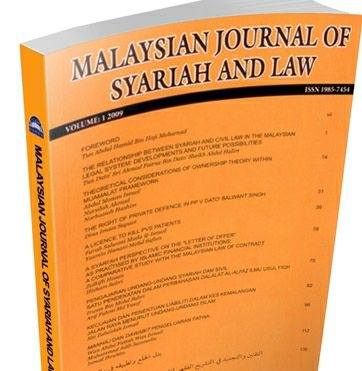THE LEGAL RATIONALES OF ENACTING MALAYSIAN SPACE LEGISLATION
DOI:
https://doi.org/10.33102/mjsl.vol5no2.63Keywords:
Legal rationales, Malaysian space legislation, Outer space law, Space treatiesAbstract
The involvement of Malaysia in outer space activities is irrefutable. It had started long ago from 1960 with the construction of her first earth satellite station in Kuantan, Pahang. Apart from building the earth satellite stations, Malaysia also has involved in various space applications and activities. These include telecommunication and broadcasting, remote sensing, meteorology, navigation, satellite manufacturing and launching, astronaut programme, suborbital space plane, commercial space ports and so forth. Such activities in fact need proper regulations. Even though some of these activities are at initial stages of involvement, however, there is a great opportunity for further engagement. Since Malaysia has no specific law deals with outer space activities, thus this paper discusses the legal rationales why it is necessary to enact the Malaysian outer space legislation. It hopes it will justify the importance of outer space legislation in the context of Malaysia as an actor and a contributor to outer space activities.
Downloads
References
Che Zuhaida Saari. (2014). National Space Legislation: Future Perspectives for Malaysian Space Law. (Leiden: International Institute of Air and Space Law, Leiden University).
Gál, Gyula. (1969) Space Law. Trans. Móra, (Leiden: A.W. Sijthoff).
Lyall, Francis and Paul B. Larsen. (2009). Space Law: A Treatise. (Surrey: Asgate).
Martin, Elizabeth A., and Jonathan Law, eds. (2006). Oxford Dictionary of Law. (New York: Oxford University Press Inc.).
Matte, Nicolas Mateesco, ed. (1984). Space Activities and Emerging International Law. (Canada: Centre for Research of Air & Space Law).
Scott C. (2007). Current and Future Legal Implications of Space Tourism and Beyond, Master Thesis LL.M Air and Space Law. (Leiden: University of Leiden Faculty of Law, Institute of Air and Space Law).
Thirlway, Hugh. (2003). The Sources of International Law. International Law, Ed., Evans, Malcolm D. (New York: Oxford University Press Inc.).
UNGA, Committee on the Peaceful Uses of Outer Space. (6-9 November 2006). Report on the United Nations/Ukraine Workshop on Space Law on the Theme “Status, Application, and Progressive Development of International and National Space Law. (Kyiv). A/AC.105/880.
Vereshchetin, V.S. and Danilenko, Gennady M. (1985). Custom as a Source of International Law of Outer Space. 13 Journal of Space Law 22.
Zhao, Yun. (2007). National Space Legislation, with Reference to China Practice. Proceedings of the Space Law Conference 2006, Asian Cooperation in Space Activities: A Common Approach to Legal Matter, at Bangkok, Thailand, 2-3 August 2006. (Montreal: Centre for Research of Air and Space Law, McGill University).

Downloads
Published
How to Cite
Issue
Section
License
Copyright (c) 2017 Che Zuhaida Saari

This work is licensed under a Creative Commons Attribution-NonCommercial 4.0 International License.









































